
Some of Our Favorite Writers on the Best Books They Read in 2019
Lydia Davis, Barry Lopez, Tommy Orange, Valeria Luiselli and Other
Freeman's Contributors Share Highlights From Their Year in Reading
Lists don’t get made only at the end of decades. All year, every year, we recommend books to one another. It’s heartening, actually. As readers, we want something to move us, make us think, provide us with something like pleasure. And to do so we turn to each other. We are as it turns out the best algorithm for picking books that ever existed. In that spirit, rather than ask Freeman’s contributors what the best book of 2019 was, I asked them to tell me what they read in 2019 that left a mark on them. A book they couldn’t stop talking about. A beauty. Something old or new, it didn’t matter, so long as its imprint lasted. Here’s what they said.
—John Freeman
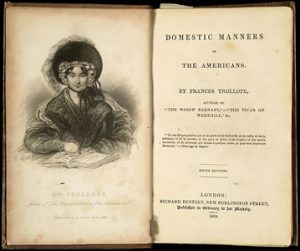
The book that jumps to mind is The Domestic Manners of the Americans, by Frances Trollope: This antic account of Trollope’s three-year sojourn in America in the late 1820s suggests that, contrary to popular belief, Americans have always been righteous, intolerant, and poorly mannered (though thankfully we rarely use pocket knives to pick our teeth anymore). Fanny Trollope became famous overnight when she published this travelogue decades before her son, the great 19th-century serialist Anthony Trollope, began his career. Her sensibility and eye for detail are spectacular; little wonder that her son’s books so often include the struggles of strong-willed women!
–Jennifer Egan, author of Manhattan Beach
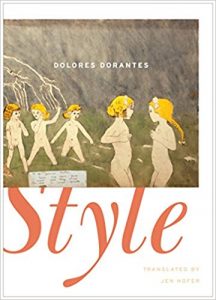
I reread and taught Dolores Dorantes’s Style a compact epic-elegy about violence against women—possibly but not exclusively, in the US-Mexico borderlands. She wrote it in 2011, while waiting for her asylum case to be resolved, in Texas. It is, without a doubt, one of the best books of poetry written in this century. It has something of Henry Darger, something of Anne Carson, something of Eliot’s Wasteland. But in its utter uniqueness it’s not easy to place. It’s simply masterful.
–Valeria Luiselli, author of Lost Children Archive
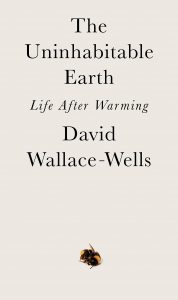
Maybe as an effective relief from the bleakness of another book I read this year with utter absorption, David Wallace-Wells’s The Uninhabitable Earth, I found Kathryn Scanlan’s Aug 9 – Fog heartening: in this unusual, finely judged and wrought work, she has created beautifully resonant lines of what amounts to prose poetry out of the found diaries of an elderly stranger and in doing so has reminded us of the beauty that can be discovered in the ordinary and in ordinary speech.
–Lydia Davis, author of Essays: One
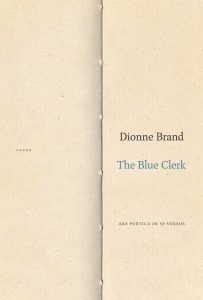
The book that has made my year different is Dionne Brand’s The Blue Clerk, which helps me make inquiries into my own attentions and intentions with/for/of/toward language and text.
–Natalie Diaz, author of Postcolonial Love Poem, forthcoming from Graywolf Press

I read, for the first time, Simone Weil’s On the Abolition of All Political Parties (NYRB Books): first published in 1957, years after her death, the essay makes a passionate case, logical and pure, for the inevitable moral corruption of party politics. In this historical moment, it couldn’t be more relevant. It’s published with an essay by Czeslaw Milosz, “The Importance of Simone Weil”, which evokes a constellation of moral thinkers: Weil, Camus, Thomas Merton, Milosz himself. Would that they were with us now.
–Claire Messud, author of The Burning Girl
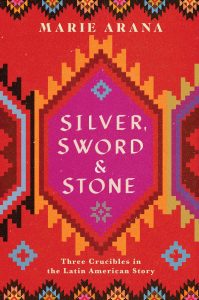
Marie Arana’s Silver, Sword & Stone: Three Crucibles of the Latin American Story is an amazing and comprehensive and lyrical and eye-opening history of the southern part of our Americas. Anyone wondering what’s going on at our “besieged borders” should read this book and they will understand. As Eduardo Galeano once said (and Arana quotes him in her book: “’History never says ‘goodbye.’ History says, ‘See you later.’”). Arana is our new Galeano, as far as I’m concerned! Or rather, Arana is her own Arana. Brava!
–Julia Alvarez, author of Afterlife, forthcoming coming from Algonquin Books
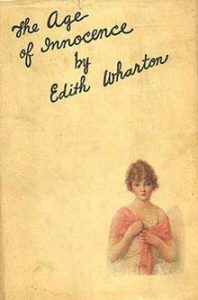
Somehow I had to wait till I was 61 to read Edith Wharton’s The Age of Innocence and The House of Mirth but, oh, what bliss it was. I felt like I was in some kind of advertising campaign promoting the joy of reading. It also took me a long while to get round to V. S. Naipaul’s masterly and prescient Among the Believers. But I want also to include two books from 2019. Before embarking on Stephen Harrigan’s Big Wonderful Thing (University of Texas Press) I kept asking myself, do I really need to read a 900-page history of Texas? Well, I suppose I didn’t need to but within 20 pages I wanted to, every spare moment I got. It’s tremendous. Meghan Daum’s The Problem with Everything (Gallery Books) is both a stylistic tour de force and a lifeline thrown to those of us who feel like we’re drowning in nonsense.
–Geoff Dyer, author of Broadsword Calling Danny Boy: On Where Eagles Dare
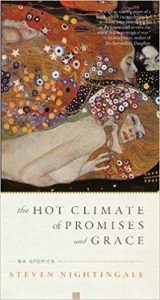
Steven Nightingale, The Hot Promises of Climate and Grace. These 64 often-very-short stories prove that American literature is not dead if one can only find a publisher to whom “literature” is not a dirty word.
–Annie Dillard, author of Pilgrim at Tinker Creek
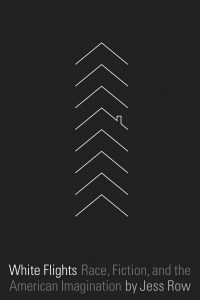
I loved Jess Row’s essay collection White Flights: Race, Fiction, and the American Imagination. I keep rereading it not only because it is a pleasure at the sentence level, but because reading it is like following instructions for making crop circles, and I can only get an overview of the actual patterns from the high ground at the start of the book. Row dispenses with the usual bromides, and gets at race as, among other things, an ethos.
–Gregory Pardlo, author of Air Traffic: A Memoir of Ambition and Manhood in America
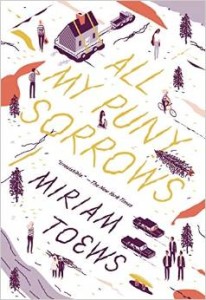
I read All My Puny Sorrows by Miriam Toews. One of the most accurate books—in its tedium and craziness—that I’ve ever read about suicide. Her deadpan desperation and glittering knack for black comedy knocked me out. She published Women Talking this year, and it is deservedly one of the year’s best on many lists.
–Louise Erdrich, author of The Night Watchman, forthcoming in March 2020 from Harper
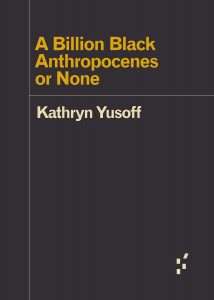
Kathryn Yusoff’s A Billion Black Anthropocenes or None: it’s coloniality and critical race studies meets earth science, and you’ll never look at geology as a discipline the same way again.
–Elaine Castillo, author ofAmerica is Not the Heart

The most powerful book I read in 2019 was The Last of the Nomads, by William John Peasley, first published in Australia in 1983. It’s a plainly told, deeply affecting story about an expedition in 1977 to locate the last two Aboriginal hunter-gatherers—a married couple in their late 60s—still pursuing a traditional existence in a remote region of the Gibson Desert, in Western Australia. They were forcibly removed and taken to live on a small white settlement.
–Barry Lopez, author of Horizon
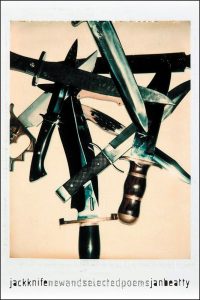
Jan Beatty, Jackknife: New and Selected Poems (Pitt Poetry Series, U. of Pittsburgh Press). I read this book in January, a gift from the author, on a trip to Pittsburgh. It shook something loose inside me, and I began to write poetry again after a long hiatus. Books, in my opinion, are medicine and this was the right prescription.
–Sandra Cisneros, author of Puro Amor
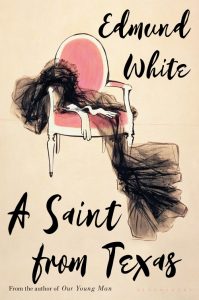
I would like to put three books together in a cluster of my favorite reading this year: The Ponder Heart by Eudora Welty, published in 1967, Bowlaway by Elizabeth McCracken, published in 2019, and A Saint from Texas by Edmund White, which will be published in 2020 but I was fortunate to get hold of a copy now. One of my favorite Rebecca West character says: “Vigor was what we esteemed.” I think that sentence explains why I love all three novels and want to place them together: there is so much life in them, the kind of vigor that makes a reader want to do something—sing, buzz, write—after.
–Yiyun Li, author of Where Reasons End
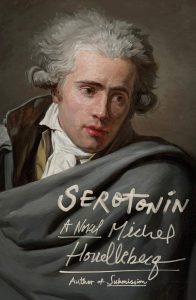
If the best book I read this year was Balzac’s vicious and dazzling Lost Illusions, the most misunderstood book I read this year had to be Serotonin, by Michel Houellebecq, another cranky satirist and French national treasure, if with less teeth than the most wretched of Balzacian guttersnipes. Finally, we get the autofiction of Houellebecq’s “agronomy years,” or seem to, but the book is actually about love, and of a specific variety: heterosexual, and from the male point of view. Despite its provocations, this is a novel of romantic and sorrowful ideas: Houellebecq as troubadour, singing lost loves.
–Rachel Kushner, author of The Mars Room
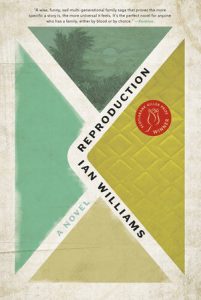
Reproduction by Ian Williams. The winner the Scotiabank Gillet prize for Canadian fiction, Reproduction is innovative, smart, funny, poetic, generous and forgiving of human foibles. It’s Williams’s first book of fiction, but it is clear he will be around for a long while.
–Aleksandar Hemon, author of My Parents: An Introduction/This Does Not Belong to You
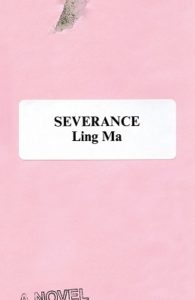
Thanks to judging I’ve had a stellar year of reading, and so it, of course, seems almost arbitrary to choose one book but nonetheless I’m going to go with Severance by Ling Ma which is so smart, and haunting that I find myself returning to it often this year because the book lingers and lingers.
–Dinaw Mengestu, author of All Our Names
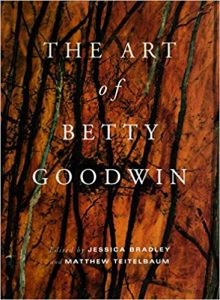
The Art of Betty Goodwin, eds. Jessica Bradley & Matthew Teitelbaum (The Art Gallery of Ontario, 1998). A book worth looking at not just for the astonishing art of Betty Goodwin herself but her way of encountering things e.g., when she travelled to NYC to see Joseph Beuys perform “Noiseless Blackboard Eraser” in 1974, bringing one of her famous “vest” etchings for him to sign but when she got there “it didn’t seem important” anymore so she just watched, not so much the performance but him; there he was with the energy pouring off him and everybody taking photographs and she did too—he was “a source of courage for me,” she said. What better praise than that. Joseph Beuys always wore the leg of a small animal on him, I learn from Betty.
–Anne Carson, author of Norma Jeane Baker of Troy, forthcoming in February from New Directions
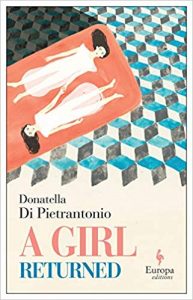
I love a riches-to-rags story, so I adored A Girl Returned by Donatella Pietrantonio. A girl who was adopted by wealthy relatives is returned to her impoverished home when she is 13. It’s such a snooty, reserved, lovely and heartbreaking portrait of squalor. Imagine a girl with a pretty bow atop her head seated on a sofa soaked in urine.
–Heather O’Neill, author of The Lonely Hearts Hotel
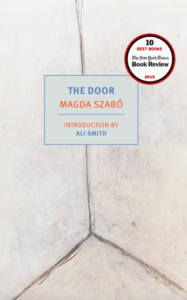
This was a blessed and bountiful year of reading for me but the book that stays with me most is Magda Szabo’s The Door, published in Hungary in 1987 but translated into English in 2015. Ever since finishing the book, I’ll be walking around and find myself thinking of Szabo’s Emerance, imagining her mysterious door and all it concealed, hearing her incessant sweeping, and considering all the ways it is possible to fail one another, especially the people we love. Thank you to the bookseller in Portland, Maine, who put this book in my hands.
–Lauren Markham, author of The Far Away Brothers
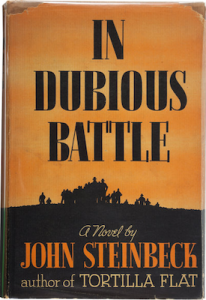
I first read John Steinbeck’s In Dubious Battle in the early 90s, as part of a political science class, one in which the professor’s syllabus featured works of literature as the points of departure to discuss various philosophies. (Herman Melville’s Billy Budd was on the syllabus, too; I very much enjoyed the reading for that class.) Up until this spring, I had remembered the novel as being deeply pessimistic about union organizing, as a rejoinder of sorts to The Grapes of Wrath. And maybe in the heady days of neoliberalism, coupled with the glowing optimism of youth, that interpretation made sense—a “slow your roll” admonition against perceived zealotry. But re-reading the book this spring, what one now takes away is not solely a sense of futility, not a tut-tutting of the tactics employed to restore dignity to people’s lives, but a jarring reminder of just how ongoing this brutal fight for justice has been. The sin here isn’t that Americans deigned to align themselves with Communism in the 30s, but what the necessary fight for a decent existence can do to people, what horrific sacrifices it demands of them, even as the payoff they seek may never arrive. Long steeped in the cruelty of our society, one dictated by the bosses and the officials all too happy to keep inhumane conditions going, how can we all not be, by some degree, poisoned by it? For me, therein lies the fire of the novel, the outrage: what are we doing to ourselves? When will this madness stop?
–Oscar Villalon, managing editor of Zyzzyva

Barry Lopez’s geographical, sociological, and spiritual journey around the world cuts deep into the diverse landscapes of the planet and of the human condition. In his epic travelogue, Horizon, Lopez’s slow but steady observations of a magnificent and damaged planet mirrors the slow but steady exploitation of its resources and the suffering such a feat creates. Meanwhile, to read David Searcy—the careful observation, infinite generosity, the riverine pattern of his voice, and dark, lonely wit—is to know (and love) David Searcy. Shame and Wonder navigates Searcy’s native landscape of Texas, a state as large and as curious as his imagination and mind. In fact, it is in his repeated transactions of negotiating the same sidewalks, the same flat open horizon, the same Dallas of his youth, that help reiterate how things change. Or how they don’t. He calibrates then recalibrates staying put, of remaining behind through the sadness of baseball, outer space, flossing, Krazy Kat, and concrete, which “never stops consolidating, keeps on getting harder year after year for maybe centuries,” gaining density and strength like Searcy’s own writing.
–Kerri Arsenault, author of Mill Town, forthcoming from St. Martin’s Press.
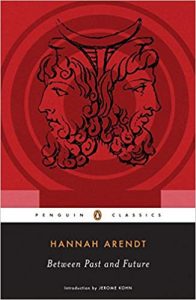
I was deeply shaken by Hannah Arendt’s Between Past and Future. I knew one of the essays of the book, the famous “Truth and Politics”, but every single piece is an extraordinary exercise in moral lucidity and political clairvoyance. How much we need her! How clearly she speaks to our times! We have to go back to Arendt, if indeed we ever left her.
–Juan Gabriel Vasquez, author of Sound of Things Falling
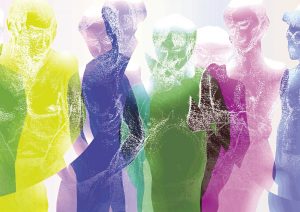
How can a Thai author’s take on nation and self be so comically sad? In Pratthana, Uthis Haemamool interweaves his desires for his country with the individual’s journey for sexual desire.
–Kanako Nishi, author of Omajinai
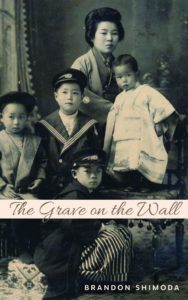
My favorite read this year has been Brandon Shimoda’s The Grave on the Wall (City Lights Books, 2019). It reads as both memoir and detective novel, as Shimoda follows his family’s paths of immigration to the US; his grandfather Midori, still a child, coming home to find—in a note on his pillow—that his mother has “gone to America;” Midori’s voyage, at nine, across the Pacific; the systematic evacuation of Japanese-Americans and their incarceration; Midori’s arrest for being in possession of a camera. It is all woven together with historical documents and interviews, along with the author’s own investigative journeys. A remarkable book.
–DA Powell, author of Useless Landscape, or A Guide For Boys
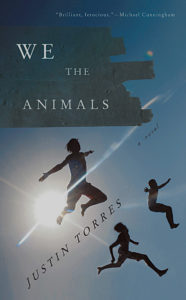
The book I return to again and again is Justin Torres’ We the Animals. He is a master at writing scenes and I always share excerpts of his book with my writing students so that they can be inspired.
–Reyna Grande, author of A Dream Called Home

Juan Gabriel Vásquez’ melancholy and elegant Sound of Things Falling reminds me of another of my favorite books A Heart So White, by Javier Marias. It tells us of the personal toll of living in a a country which politically speaking, appears lost in the darkness. Valeria Luiselli’s Lost Children Archive is utterly inventive, deeply political and ultimately a book about the depths of empathy and a country which at times seems lost in the moral darkness.
–Aminatta Forna, author of Happiness
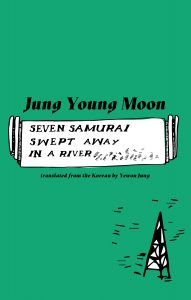
Seven Samurai Swept Away in a River by Jung Young Moon (Deep Vellum Press 2019): In the vessel of Jung’s wonderfully funny and relentlessly self-examinatory analysis, the airy weirdness of small-town Texas gets compressed almost to the point of detonation—all that dusty cow and cowboy business brought to an eerie glow.
–David Searcy, author of Shame and Wonder

Vampyrotheuthis Infernalis: A treatise with a Report by the Institut Scientifique de Recherche Paraneturaliste, by Vilém Flusser and Louis Bec (translated by Valentine A. Pakis), (University of Minnesota Press, 2012). Okay, this is a weird one, branded as “part-scientific treatise, part-spoof, part-philosophical discourse, part-fable.” It looks like a naturalist text with intricate renderings of the “vampire squid from hell,” but Flusser, a Czech Brazilian, wrote in 1987 a techy Borgesian fabula that anticipates current cogitations on the post-human, alien, cannibalistic extraterrestrial. I got interested because Flusser lost his family to the holocaust, and escaping to Brazil, breathed something (like me) in the sad tropics that must have influenced his thinking.
–Karen Tei Yamashita, author of Sense and Sensibility: Stories, forthcoming from Coffee House Press
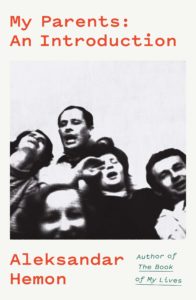
Never mind the bollocks and Peter Handke. If you want to get your head around Bosnia, read Aleksandar Hemon instead. Start with one of the greatest literary debuts I know, The Question of Bruno (2000), and work your way up to My Parents: An Introduction/This Does Not Belong to You.
–Johan Harstad, author of Ferskenen
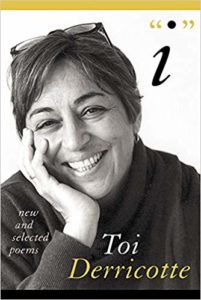
Among many favorites in 2019, three books in particular stand out for me. First, Toi Derricotte’s I: New and Selected Poems, 30 new poems, and generous selections from Derricotte’s five important earlier books of poetry. “I” is a journey of enduring and vital love and joy, of sadness and anger, of incisive moral witness to America’s violence and racism, written by an “I” who “is the one I was most // True to.” Driven by a Detroit-born, soul base line like her Detroit peer Aretha Franklin, Derricotte’s voice is deeply infused with the deepest spiritual power. Her extraordinary “I” is our journey, too.
Also, Jana Prikryl’s No Matter, her second book of poems, set primarily in a post-2016 presidential election New York City. Prikryl creates a psychic terrain that includes racism, sexism, and xenophobia, its subjects revolving around a woman’s, and women’s, experiences, “the city” a place in which women, as workers, as mothers, are surrounded by increasing injustice, inequality, and the destructive pressures of capitalism. Written, as was Prikryl’s first book The After Party, in a language spoken from a poetic voice never quite heard before, each poem in No Matter opens new spaces of thought, feeling, and observation. No Matter is astonishingly achieved and urgently crucial.
And a book of nonfiction by one of our best poets—David Lehman’s One Hundred Autobiographies: A Memoir. While in throes of fighting cancer, Lehman wrote every day he could, as a way of imaginatively affirming his existence and escaping the terrible ordeals of pain, dread, and emotional chaos. First of all figuring out a formal strategy, as expert poets do, Lehman then crafts a brilliant, inventive portrait of a mind, in language in which everything counts. The book’s moral seriousness and theological and ancestral powers provide extreme aesthetic pleasure—Lehman’s forms of language are forms of life, always life. One Hundred Autobiographies teaches and instructs its fortunate readers, like all great literature, which it is.
–Lawrence Joseph, author of A Certain Clarity: Selected Poems, forthcoming from Farrar, Straus and Giroux in March 2020
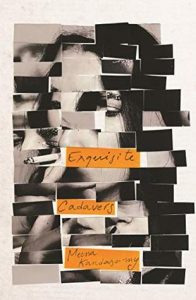
Meena Kandasamy’s recently released Exquisite Cadavers. At a moment when the fight for political voice seems deadlocked Kandasamy’s style incisively, gently, offers us a way out. Exquisite Cadavers insists that facts matter insofar as they are deeply felt, and that it is fiction that guards the reality of intimate violence.
–Nimmi Gowrinathan, author of Radicalizing Her, forthcoming from Beacon Press in 2020

I read Michael Frayn’s Toward the End of Morning for the first time on a beach in Italy during our last childless holiday while my wife was six months’ pregnant with our daughter. It struck me as pure pleasure then (in its weirdly nostalgic evocation of grim 60s England), and when I reread it again last week, the pleasure hadn’t changed. Particularly good on how to appear on television.
The Texas Larry McMurtry describes in Lonesome Dove has little to do with the one I grew up in, and I’ve never particularly dreamt of sleeping on the open range with my head on a saddle . . . but this is one of those books that feels like an extra room in the house for as long as you take to read it (and it’s long). I found myself ducking away all the time to get back to it, almost as if it were an iPhone.
When I was a kid in Austin I had no idea that the mixed basketball teams I played on were so recent a phenomenon . . . Earl Campbell, Yards After Contact, by Asher Price, my brother-in-law who writes for the Austin American Statesman, is a gripping and very powerful account of what Earl Campbell had to fight through to push along the integration of Texas football. Tom Stoppard once said that genius can open a door before the house is built—that’s what Campbell did.
–Benjamin Markovits, author of Christmas in Austin
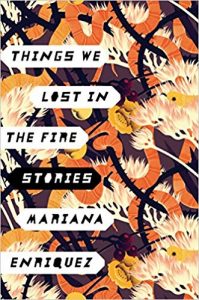
Mariana Enriquez’s Things We Lost in the Fire is a book that I totally adored this year, it’s so concise, weird, brilliant, grotesque, clever, and dark. It captures the brittle truths so well.
–Jenni Fagan, author of There’s a Witch in the Word Machine
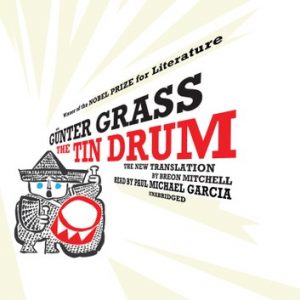
I recently reread (listened to the audiobook) Gunter Grass’s Tin Drum. The narration is intoxicating. It’s a wild book.
–Tommy Orange, author of There, There
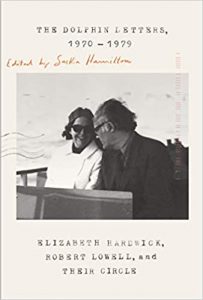
The Dolphin Letters, 1970-1977: Elizabeth Hardwick, Robert Lowell, and Their Circle gives an intimate glimpse into how one famous literary couple navigated the dilemmas of love and the making of art—with the various trespasses that so often vex these essential drives—as the 70s unfurled around them; the correspondence pulses with remorse, beauty, and intelligence, none of which can slow time or make the alluring disorder of such rich untidy lives into tidy narratives: “We always think we are writing our autobiography,” Hardwick wrote to Lowell in 1972, “but life is not willing to tell [“tell” is crossed out] assure us which part of ourselves is the main one, which action is telling and what it tells. In that way I guess it is folly to see your life as a book . . .”
I’m also wonderfully unsettled and accompanied by Deborah Landau’s Soft Targets, which I think of each time we have (somehow) to metabolize another act of violence: her book is terrifying, in all the best ways, an intimate x-ray of one woman’s meditation on violences past, present, and future.
And this year I read the Spanish novelist Javier Marías for the first time, starting with The Man of Feeling, an often overlooked early novel that was a wonderful introduction to this writer and his ecstatic syntactical coruscations.
–Catherine Barnett, author of Human Hours
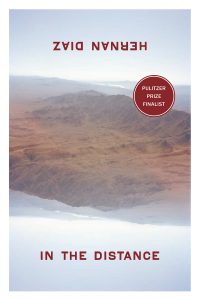
I’m not big on period pieces or westerns, but Hernan Diaz’s novel In the Distance was the perfect anti-western period piece that had so many elements of our current immigration reality. I was surprised a Swedish immigrant named Hakan, could seep into my skin and blow me away. I still think about him.
–Javier Zamora, author of Undocumented
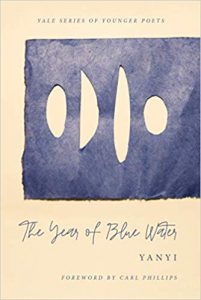
The Year in Blue Water by Yanyi. I’d just returned from Hong Kong last month and where I been thinking about the distance that separates generations of people each wanting to be right, to be their own heroes. Then these poems wove into that narrative something new, that those who did not love each other would not feel such pain.
–Xuan Juliana Wang, author of Home Remedies

A few weeks ago I reread Paradox Lost, a sci-fi story collection from the early 1970s. It used to be my favorite book when I was in 10th grade and strangely, 35 years later, it is still awesome.
–Etgar Keret, author of Fly Already: Stories
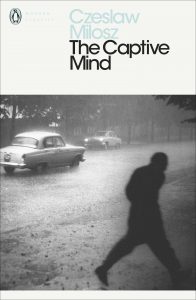
As I read through Milosz’s Captive Mind (even though this book was written mid-century) I felt and knew that here I had a number of key investigations regarding “freedom of thought,” and “the suction of the absurd,” two key discussions that applied directly to our time—the abuse of power and the production of new terms and ideologies propping the New Fake Method whereby people’s knowledge and humanity are denied.
In addition to our thirst for more awareness on the power-levers of the world-system, I felt this this was a necessary missing piece, a volume of conversations between two revolutionaries of kindness. I wanted to know their personal ways of tasking human suffering and how they tackled global consciousness. I must have underlined every page.
–Juan Felipe Herrera, author of Notes on the Assemblage
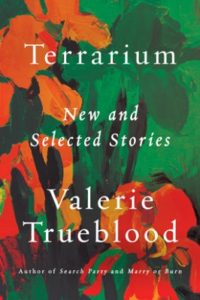
Valerie Trueblood’s Terrarium: New and Selected Stories (Counterpoint Press) slips easily into a lofty place alongside Gina Berriault’s Women in Their Beds as a remarkable and inspiring demonstration of formal ingenuity and mastery of the American short story.
–Manuel Muñoz, author of The Faith Healer of Olive Avenue: Stories

Three Poems by Hannah Sullivan is the kind of book I almost don’t want to tell anyone about so I can hoard all its nimbleness and wisdom for myself. Teeming with shrewd rhyme and precise detail about everything from birth and death to Cynar and Williamsburg.
–Maggie Millner, poet
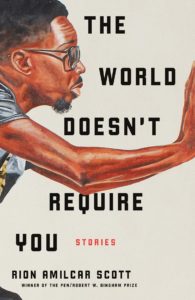
The World Does Not Require You by Rion Amilcar Scott is a daring and extraordinary collection. As with his previous collection Insurrections, these stories are set in the fictional town of Cross River, MD., but are boundless in terms of genre and form. Also Scott writes dialogue like no other, or maybe like one other—the great August Wilson—whom he counts as an influence.
–Tania James, author ofThe Tusk That Did The Damage
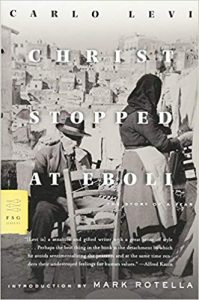
The book I returned to most in 2019 is Christ Stopped at Eboli, Carlo Levi’s memoir of the year he served as a political prisoner in an impoverished Italian village in 1930s. It offers both an arresting portrayal of a country riven by political and economic inequality, and a profoundly compassionate vision of humanity. Levi relates the small triumphs and endless hardships of those he lives alongside with a grace to rival Chekhov.
The most impressive new book I read in 2019 was On Swift Horses by Shannon Pufahl. It’s a brilliant subversion of the mid-century noir and western, featuring two of the most vivid characters, and a couple thousand of the most beautiful sentences I’ve ever read.
–Anthony Marra, author of The Tsar of Love and Techno
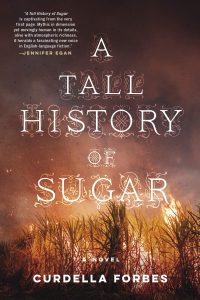
A Tall History of Sugar by Curdella Forbes. Curdella Forbes writes a prose charged with history’s disquiet and turbulence in a melody poised and slant against it. The melody is an act of love, many times broken, here fabulously (in the strict sense of the word) sutured to withstand the ongoing tyranny of sugar.
–Ishion Hutchinson, author ofHouse of Lords and Commons
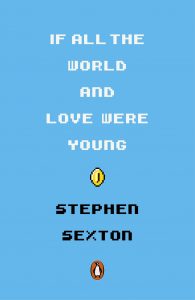
A book that meant a lot to me this year was Stephen Sexton’s extraordinarily moving and innovative book-length elegy If All the World and Love Were Young.
–Deborah Landau, author of Soft Targets
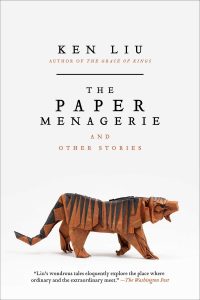
Ken Liu’s short story collection (and novella), The Paper Menagerie & Other Stories is the most refreshing and mind-blowing book I’ve read in years—reading this felt like discovering Borges or Ray Bradbury for the first time. After reading his acclaimed translation of the Chinese sci-fi masterpiece The Three Body Problem (the author Cixin Liu said that the English translation was better than the original) earlier this year, I was lucky enough to stumble upon a talk he was giving at the Swiss Institute on the history of the legal codex, from Sumerian cuneiform tablets to contemporary digital law libraries, titled “The Bookmaking Species.”
–Chris Russell, is at work on Farewell, Homeland, a graphic memoir of the Syrian civil war, with Patrick Hilsman. Cosmos, a graphic translation of the 1960s novel by Witold Gombrowicz, will be published by Sligo Press
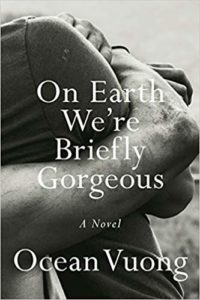
On Earth, We’re Briefly Gorgeous, by Ocean Vuong. This is a novel that is a longform poem and letter to the author’s mother, a tough, very tough woman who fled her homeland during the tumult and terror of the Vietnam War. It is a novel with the polished and exquisitely-placed language of a poem. The book maps the great canyons of difference that open up between refugees and their Americanized children, between straight parents and their queer children.
Just Kids, by Patti Smith. I cannot resist the down-and-out bohemian glamor of pre-Giuliani New York City. I cannot resist the simultaneously flat broke and extravagant romance of Patti Smith and Robert Mapplethorpe, before they became PATTI SMITH and ROBERT MAPPLETHORPE. I cannot resist the beautiful sadness of Patti Smith, who knows that the great romance of it all is fleeting, and will end with an AIDS diagnosis and a crushing, premature death for her beloved.
Rusty Brown, by Chris Ware. Chris Ware is rightly celebrated for his fresh, experimental approaches to writing and illustrating comics. This graphic novel, 18 years in the making, is devastating. It chronicles the life of a red-headed lifelong loser named Rusty. Ware does not flinch from any of the exquisitely awful truths of human loneliness, selfishness, entwined lust and love, and the basic human hope for connection and transcendence beyond the quiet desperation that Thoreau warned us of.
We The Animals, by Justin Torres. This story chronicles the story of a boy growing up amidst poverty, instability, and violence in a bi-racial, bi-cultural family. He survives, and is witness to terrible things, but also the ferocious love of family, and the sacred tenderness that can persist even in the face of terrible abuse and violence.
–Jaime Cortez, author of Sexile/Sexilo
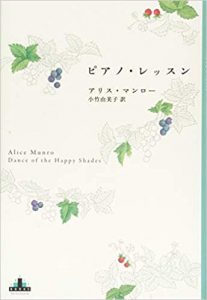
Dance of the Happy Shades by Alice Munro. Translated into Japanese in 2018 by Yumiko Kotake, under the title “Piano Lesson.” There was a moment in here that made me think something definitive shifted in the depths of consciousness itself. This moment was not ostensibly about any great event, yet something in it touched upon the core of human existence.
–Sayaka Murata, author of Earthlings, forthcoming from Grove in fall of 2020
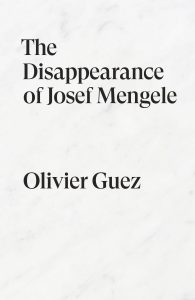
The beautiful thing about being an alien is that you can read seriously wonderful books before they make it into the US (if they ever do). I just read The Disappearance of Josef Mengele, a true fiction thriller by French author Olivier Guez that traces the South American journey of Josef Mengele, aka Herr Doktor Death. It’s coming in February from Verso Books. Infused by an obsessive research—later confirmed by Mossad—the novel brings to life the nazi-friendly Buenos Aires of the late 1940s and 50s, always a paradise for refugees. Great ideas mingle and darkly dance as Mengele becomes cornered and we join in the hunt across misty Brasil and Paraguay. In searching for the “cannibal dandy,” Mr Guez traces the disappearance of Europe (or an idea of Europe).
SHANZHAI. Deconstruction in Chinese. (MIT Press) The Berlin-based, Korean born philosopher Byung Chul Han examines the notion of copy and original in Chinese. He’s tackling a crucial problem in philosophy today: how do we deal with representation, now that (most) objects are digital and they don’t longer are “supported” by real things? In making us think about deconstruction from the point of view of the Chinese tradition and language, Byung Chul Han opens up new paths for both metaphysics and art theory.
–Pola Oloixorac, author of Dark Constellations
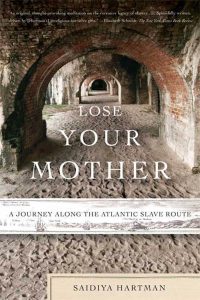
Lose Your Mother by Saidiya Hartman (Farrar, Straus and Giroux, 2008). It is a book that offered words, both on the literary and the political level, to many personal thoughts and feelings, that had been buried under uncertainty since decades.
–Adania Shibli, author of Minor Detail, forthcoming in May 2020 from New Directions
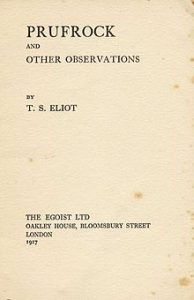
“The Love Song of J. Alfred Prufrock” by T.S. Eliot. I read it recently, and then I thought: do one better—memorize it. And so that is what I did. After many months of repetition, I now find myself standing in line, waiting for the bus, sitting in cafes and reciting it to myself instinctively, over and over and over again. The words have woven themselves into the architecture of what I am, they are my talisman against these times.
–Shobha Rao, author of Girls Burn Brighter
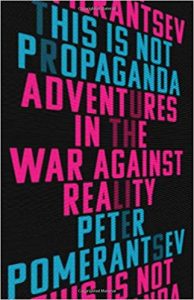
This year I’ve mainly been reading dystopian fiction and/or nonfiction books that depict our current dystopia. This is not Propaganda by Peter Pomerantsev, Mindf*ck by Christopher Wylie and Surveillance Capitalism by Shoshana Zuboff all consider themes of post-truth, fake news, and how we live in reality when reality has gone awol. They are all deeply troubling and brilliantly galvanizing. The tech-philosopher Tom Chatfield published a clever, thrilling novel set deep in the Dark Web, with another title that could also be a slogan for our times: This is Gomorrah. I also loved Jana Prikryl’s beautiful poems about individuals trying to exist within insane societies that claim, disconcertingly enough, to be sane: The After Party and No Matter.
–Joanna Kavenna, author of Zed
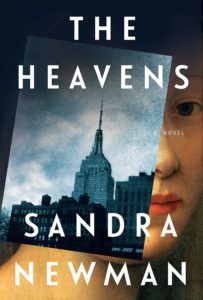
The Heavens by Sandra Newman surprised me. It’s a time travel novel, maybe; it can be also a love story, or a study of a woman or a relationship. It’s so well written, so special and so sad. I loved it.
–Mariana Enriquez, author of Things We Lost in the Fire
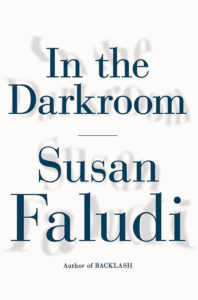
In the Dark Room, by Susan Faludi. I couldn’t stop talking about it for weeks. Faludi is reunited with her father who she has not spoken to in 20 years and visits him in Budapest after he has had gender reassignment surgery. She begins to piece together the history of her father and finds a character better suited to a novel than real life.
–Nadifa Mohamed, author of The Orchard of Lost Souls
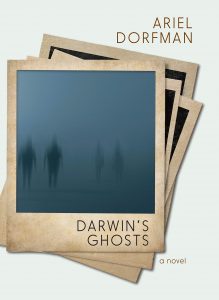
One of the great joys of this year was reading Ariel Dorfman’s Darwin’s Ghost. If everywhere we have been is everywhere we are, then perhaps we can also say that everyone we have been is everyone we now are. Reading this novel led me to re-reading his Desert Memories, Journeys Through the Chilean North. I have long wanted to go to Chile for a long time now, but Dorfman has brought me there in advance.
–Colum McCann, author of Apeirogon, forthcoming February 2020 from Random House
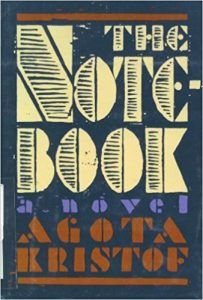
The book that amazed me the most was Agota Kristof’s The Notebook, translated to Swedish this year. I have never read prose like that before, with an exactitude towards trauma that blew my mind.
–Athena Farrokhzad, author of White Blight
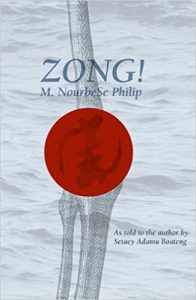
Zong! by M. NourbeSe Philip (Wesleyan University Press, 2008). Brilliant and devastating, this book combines historical research alongside excavations of sound and language in order to retell the injustices inflicted on a people and to offer its long-awaited and necessary truth.
–Mai Der Vang, author of Afterland
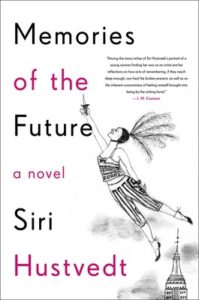
Memories of The Future by Siri Hustvedt—an Intimate sexy subversive novel about women’s past and future in lyrical prose.
–Xiaolu Guo, author of Nine Continents
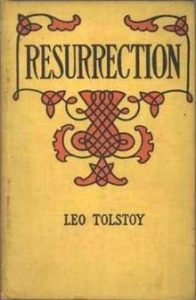
My top book for 2019 is Resurrection by Leo Tolstoy. I read it for the first time a few months ago and I was fascinated by the modernity of this text. It is the story of an aristocrat who rapes a woman during vacation in the country. Years later, he is selected for jury duty and the woman who is accused of murder is the one he raped. That’s an illumination for him: he is responsible for the tragic destiny of this woman. A masterpiece.
–Leïla Slimani, author of Sex and Lies, forthcoming in July 2020 from Penguin
Freeman's
Freeman’s is a new biannual of unpublished writing by former Granta editor and NBCC president John Freeman, which brings together the best new fiction, nonfiction, and poetry around a single theme.












